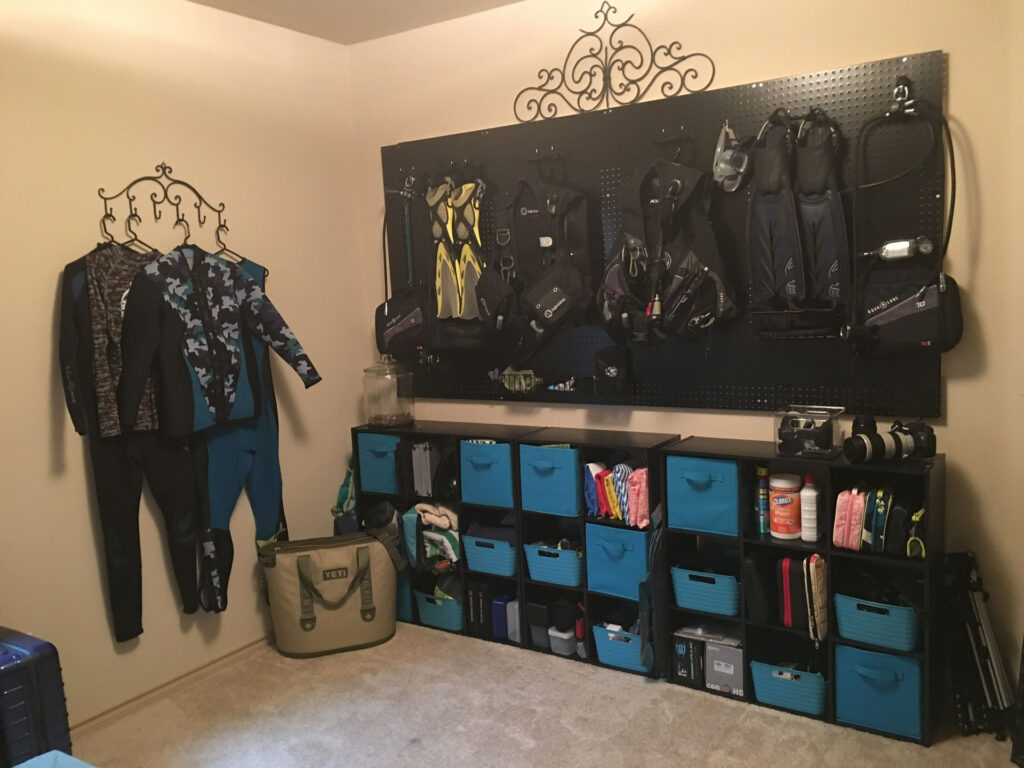
Image Source: Google
Scuba diving is an exhilarating experience that allows you to explore the underwater world and discover marine life in its natural habitat. To ensure that your scuba gear stays in top condition and is ready for your next dive, proper storage is key. Here are some tips on how to store your scuba gear effectively:
1. Rinse and Dry Your Gear
After each dive, it is crucial to rinse your scuba gear with fresh water to remove salt, sand, and other debris. This will help prevent corrosion and prolong the life of your equipment. Make sure to dry your gear thoroughly before storing it to prevent mold and mildew from forming.
Key points to remember:
- Rinse your gear with fresh water after every dive.
- Dry your gear completely before storing it.
- Hang wet suits and BCDs in a well-ventilated area to air dry.
2. Store Your Gear in a Cool, Dry Place
When storing your scuba gear, choose a cool, dry location away from direct sunlight. Avoid storing your gear in a hot, humid environment as this can cause damage to rubber seals, straps, and other components of your equipment.
Consider the following storage options:
- Use a dedicated gear bag or storage container to keep your equipment organized.
- Avoid storing your gear in a garage or attic where temperatures can fluctuate significantly.
- Keep your gear away from sharp objects that could puncture or damage it.
3. Protect Your Regulators and Dive Computers
Your regulators and dive computers are delicate instruments that require special care. Make sure to protect them from impact and damage during storage.
Tips for storing regulators and dive computers:
- Store your regulators in a padded regulator bag to prevent damage to the first and second stages.
- Remove batteries from your dive computer before long-term storage to prevent corrosion.
- Keep your dive computer in a protective case when not in use.
4. Inspect and Maintain Your Gear Regularly
Regular maintenance is essential to ensure that your scuba gear remains in good working condition. Inspect your equipment regularly for signs of wear and tear, and address any issues promptly to prevent potential problems during your dives.
Important maintenance tasks to perform:
- Check hoses, O-rings, and straps for wear and replace them if necessary.
- Inspect your dive mask for cracks or scratches that could affect visibility underwater.
- Service your regulators and BCD annually to keep them functioning properly.
5. Follow Manufacturer Guidelines for Storage
Each piece of scuba gear comes with specific care instructions from the manufacturer. It is essential to follow these guidelines for storage to ensure that your equipment remains in top condition and performs optimally during your dives.
Key points to keep in mind:
- Read and follow the manufacturer's recommendations for cleaning and storing your gear.
- Store your gear in the original packaging or carrying case when not in use.
- Use approved cleaning agents and lubricants to maintain your equipment as recommended by the manufacturer.
By following these tips for properly storing your scuba gear, you can prolong the life of your equipment and ensure that it is ready for your next underwater adventure. Remember that proper maintenance and care of your gear are essential for a safe and enjoyable diving experience.
